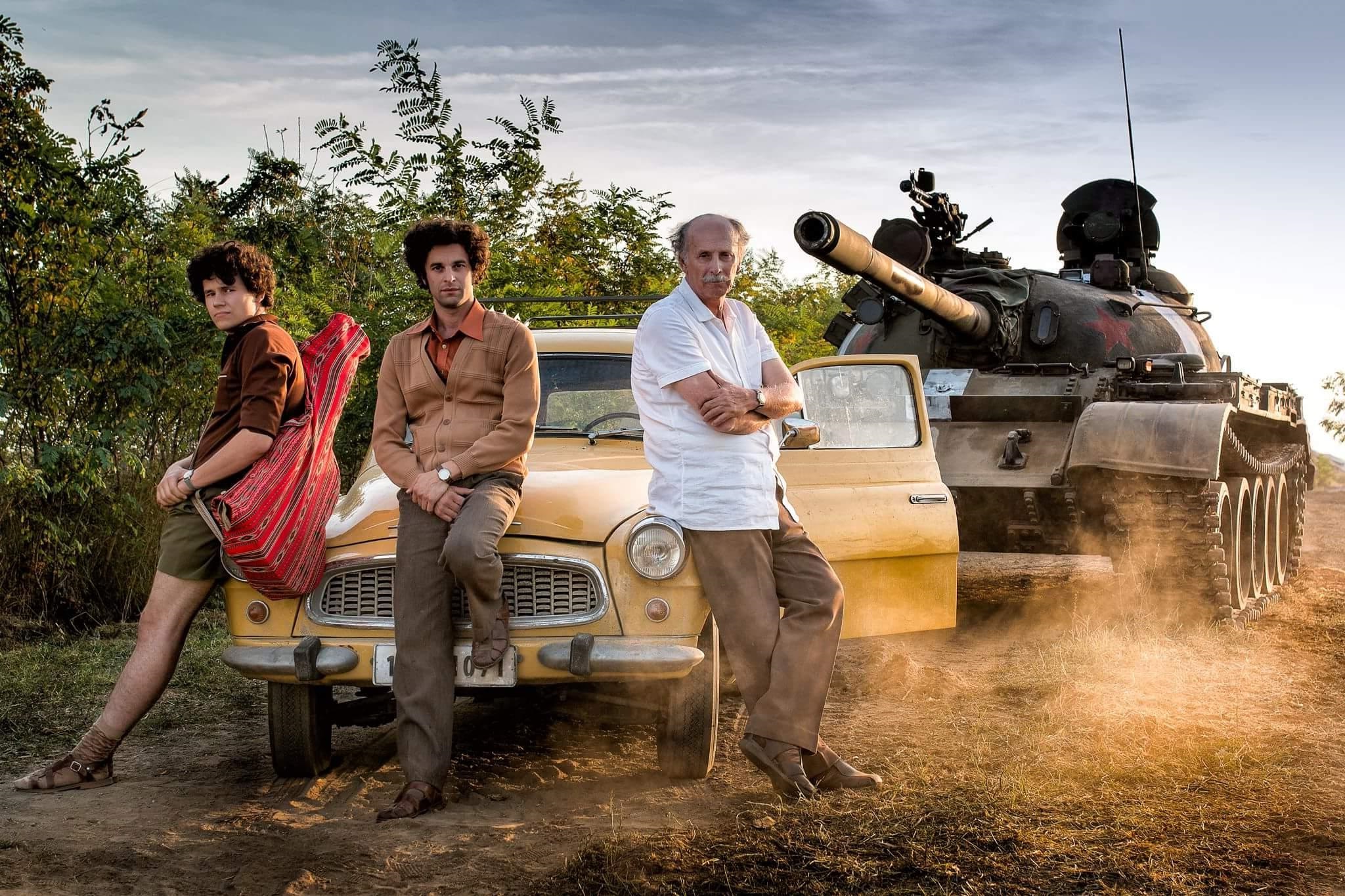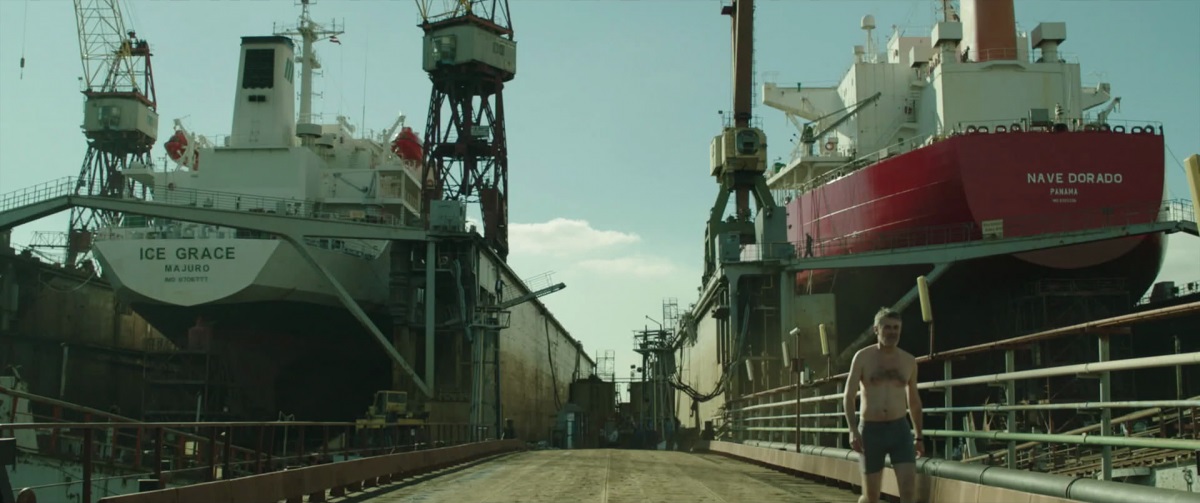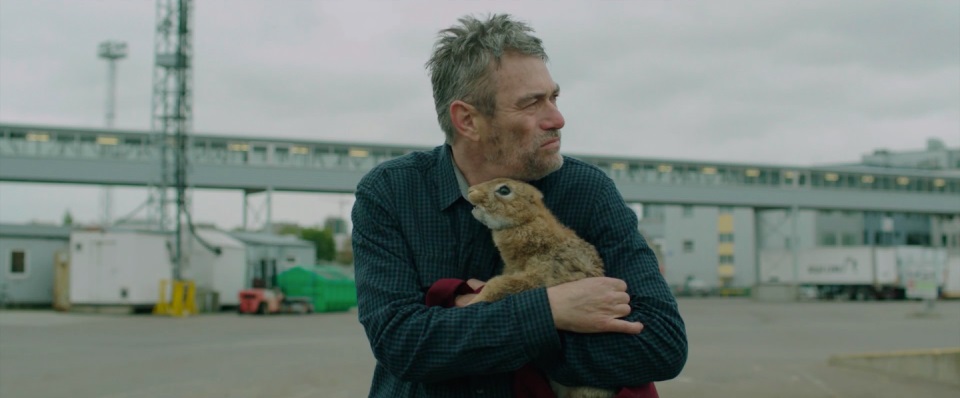Beyond Borders – Hungarian Participation in International Co-Productions
On the other hand, the Hungarian National Film Fund (HNFF) has been supporting several international co-productions through Hungarian film companies, for instance KMH Film, Laokoon Film Group, Mirage Film and Proton Cinema. Besides the fund’s transparent system of supporting films, the 25% Hungarian tax rebate is also an attractive element for teaming up with Hungarian producers.
One might ask why a nation’s film-funding organisation should support foreign movies. Firstly, Hungary will be mentioned in connection with these co-productions and it is therefore beneficial for both parties to work together, because getting new talents and professionals recognised means more collaboration in the future. Besides, the participation in international co-productions is interesting for a European country because of other cultural and social reasons: to remember the past and to build and maintain a common cultural identity in the future.
The Dutch historical drama ‘Kenau’ (2014) was a spectacular example of this. The director Maarten Treurniet’s movie was a Dutch, Belgian and Hungarian co-production and was partly supported by the HNFF and produced by I’m FILM. ‘Kenau’ fictionalised a real event of the Eighty Years’ War, namely the struggle of a female warband during the siege of Haarlem in 1572, through which Kenau, the leader of the group, became the symbol of the European woman who knows her rights and is ready to fight for her family and for freedom. Equality for women and the hunger for freedom – which are also principles of the European Union – were therefore the premises of Treurniet’s work.

That Trip We Took With Dad by Anca Miruna Lăzărescu
The German, Romanian and Hungarian co-production ‘That Trip We Took With Dad’, directed by the Romanian-German Anca Miruna Lăzărescu was partly produced by Mirage Film Studio with Hungarian financial participation. The central theme of Lăzărescu’s work is the collective memory of eastern European socialism. The Romanian-born director used her father’s real-life story as an example of how the illusions of many young eastern Europeans were destroyed with the fall of the movements of 1968, especially the Prague Spring. This road movie could be interpreted as a typical experience of the Eastern Bloc before 1989. And through the protagonist’s conversations with West German radical leftists, Lăzărescu also talks about how Romanians, Hungarians and East Germans lost faith in capitalism after the end of communism.
The Romanian, Bulgarian and Hungarian co-production ‘6.9 on the Richter scale’ has just been released and touches the theme of being an eastern European, not unlike ‘The Trip We Took With Dad’. Nae Caranfil’s movie is supported by both the HNFF and co-produced by Cinema Film. The dramedy’s story is about a middle-aged actor, Tony, who has become burned out and dissatisfied with his marriage. It is also about the tale of a mid-life crisis as a generational conflict and the legacy of socialism, as the protagonist’s infantile father was symbolically named after a Russian plane.

Out by György Kristóf
A Slovak, Czech and Hungarian project entitled ‘Out’ was co-produced by KMH Film and Mirage Film Studio. The major part of the budget was provided by the Slovak Audiovisual Fund, which complemented the Hungarian and the Czech participation. The Slovak-Hungarian director György Kristóf’s work is, of the abovementioned films, the closest to Hungary because of its protagonist and mainly Hungarian cast, and it will be the second Hungarian film at the upcoming Cannes Film Festival alongside Kornél Mundruczó’s ‘Jupiter’s Moon’. Just as in Caranfil’s film, ‘Out’ tells the story of a disillusioned eastern European man, Ágoston, who loses his job and is forced to find a new one somewhere in Lithuania. The film therefore catches the experience of economic migrants and of course reveals the post-socialist condition of the countries beyond the former Iron Curtain.
Finally, ‘Ether’ is set during the years of the Great War. The prominent Polish filmmaker Krzysztof Zanussi has not revealed much about his movie yet, but he did say that it is going to be a ‘Faustian project’ that deals with the early insecure use of anaesthetics. Zanussi shared the following thoughts in an interview: ‘many were dying because there was no way of knowing whether enough was being given. It was dangerous. It was also a symbol of possession. It is Faust; it is the intriguing idea that a human being can sell their own soul. People don’t sell their work, they sell their soul’. ‘Ether’ is a Polish, Lithuanian, Ukrainian and Hungarian co-production (the Hungarian co-production company is Laokoon Film Group).
A co-production can only be successful if the story of the film demands the collaboration of international partners that can foster its creative energy and help its production. These films do not simply narrate exciting and dramatic stories, they also help their audience remember and deal with the past in which problems of the present are deeply rooted. Remembrance is the key to a more predictable future and a common cultural identity that encourages collaboration between the nations of today’s Europe.
Attila Benke
